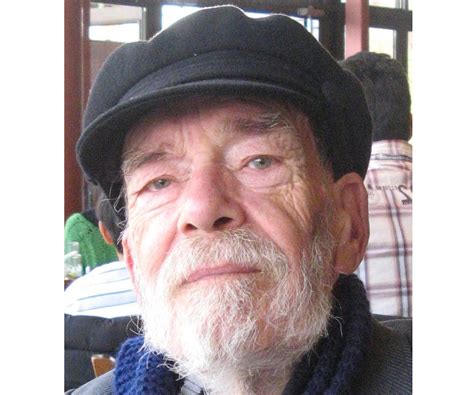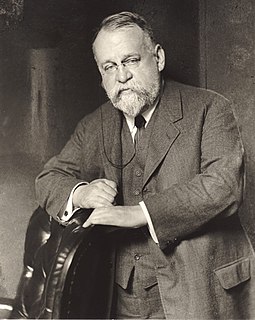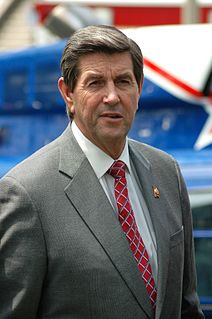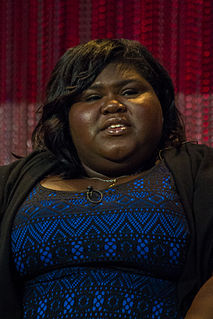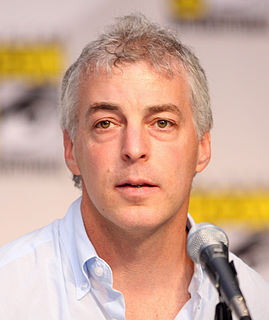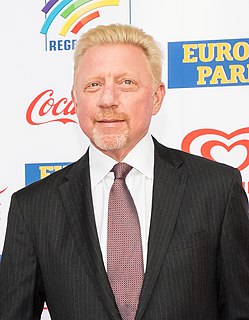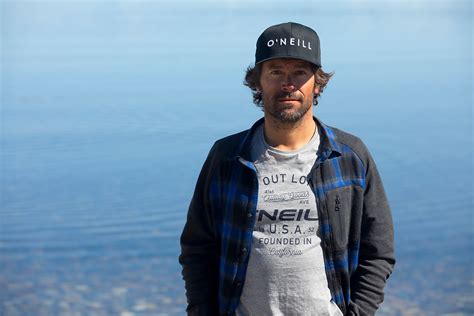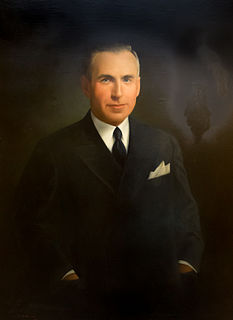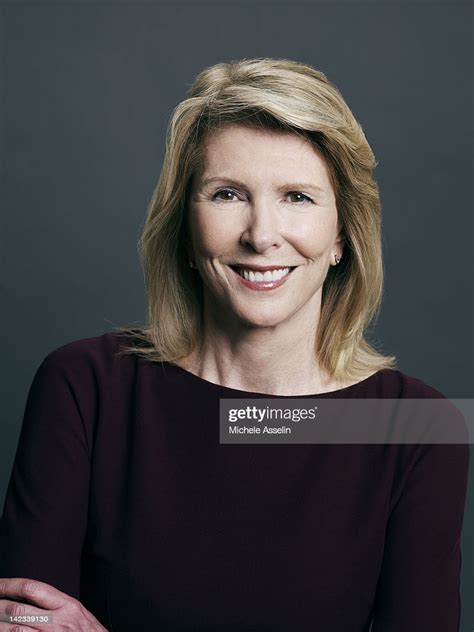Top 1200 Leadership And Change Quotes & Sayings - Page 12
Explore popular Leadership And Change quotes.
Last updated on December 19, 2024.
We are such docile creatures, normally, that it takes a virus to jolt us out of life's routine. A couple of days in a fever bed are, in a sense, health-giving; the change in body temperature, the change in pulse , and the change of scene have a restorative effect on the system equal to the hell they raise.
Change is difficult and it takes time. It is hard for people to change their own behavior, much less that of others. Change programs normally address attitudes, ideas, and rewards. But the behaviors of people in organizations are also strongly shaped by habits, routines, and social norms. Real change requires new power relationships, new work routines and new habits, not just intent.
I believe that if one can understand one's false personality or ego, then they can develop self-awareness and the manifesting of that self-awareness is leadership. Such a leader sets up the mechanisms within which creativity can flourish, and managers turn this into innovations in the marketplace and society. But it's never as clear-cut as I'm making it sound. It's much more dynamic, chaotic and fascinating in the way it plays out. That's why people have to operate more from their inner essence; it's the other constant that copes with the legendary constant of change.
Men do change, and change comes like a little wind that ruffles the curtains at dawn, and it comes like the stealthy perfume of wildflowers hidden in the grass. Change may be announced by a small ache, so that you think you're catching cold. Or you may feel a faint disgust for something you loved yesterday. It may even take the form of a hunger that peanuts won't satisfy. Isn't overeating said to be one of the strongest symptoms of discontent. And isn't discontent the lever of change?
Leadership is the great challenge of the 21st century in science, politics, education, and industry. But the greatest challenge in leadership is parenting. We need to do more than just get our enterprises ready for the challenges of the twenty-first century. We also need to get our children ready for the challenges of the 21st century.
You may not control all the events that happen to you, but you can decide not to be reduced by them. Try to be a rainbow in someone else's cloud. Do not complain. Make every effort to change things you do not like. If you cannot make a change, change the way you have been thinking. You might find a new solution.
Jesus does not respond to our worry-filled way of living by saying that we should not be so busy with worldly affairs. He does not try to pull us away from the many events, activities, and people that make up our lives. . . . He asks us to shift the point of gravity, to relocate the center of our attention, to change our priorities. Jesus does not speak about a change of activities, a change in contacts, or even a change of pace. He speaks about a change of heart.
As for my destination, I don’t think I ever knew one. I walk, I run in the direction of my dreams. Things change along the way, people change, I change, the world changes, even my dreams change. I don’t have a place to arrive, I just keep doing what I know how to do, the best that I can do it. I’ll probably end up a deluded geriatric in a wheelchair wearing a cape and tights, imagining my own flight out of this world, but of course with a young girl in my arms.
One of our great strength, world capitalism, is the most successful economic system possible, but has also become one of shorter and shorter cycles of evaluation. CEOs, companies, stocks, profits and debits change at an ever more accelerated pace in response to the demands of stockholders and the market. We have already experienced some consequences of the shortening cycle of decision making in business, but those are minor in relation to the grand systemic collapse that always eventually results from such accelerating and shortening periods for leadership goals.
Sometimes, counter-intuitively, it's easier to make a major change than a minor change. When a habit is changing very gradually, we may lose interest, give way under stress, or dismiss the change as insignificant. There's an excitement and an energy that comes from a big transformation, and that helps to create a habit.
What is clear is that business leaders must commit to champion change - to be transparent about their goals for change, to align their incentives systems to drive the change, and to make sure their work environments are flexible in a way that allows men and women who choose to work to be able to achieve all of their potential.
The repealing and replacing of Obamacare is very complicated. It is what a White House and congressional leadership, serious White House and serious congressional leadership, should meet on and work on and figure out a strategy of, and it may work and it may not. Obviously not every administration gets things through, even when they have much larger majorities in congress and a much larger popular vote than Donald Trump had.
I change so many houses and places where I live; I change them like I change socks. I don't have this absolute, kind of, how you say, attachment. My brother, if he just has to go to holiday to sleep in different bed, for him it is a disaster. I can sleep under this table or in a five-star hotel; I don't care.
A lot of people complain about yesterday. We have no power to change yesterday. But this very day, 30 years later, is what we can control and decide. Change yourself, take baby steps, and stay determined for ten years. I thank the times of change and everyone’s complaints. Because when everyone is complaining, that is your chance, an opportunity. It’s only in times of change that someone can be clear of what he has and wants, and what he needs to give up.
The World Bank is the monopoly provider of poverty data and, partly due to a leadership change there, the World Bank's reporting has been heavily on the rosy side since about 2000. The Bank's cultivation of an upbeat picture affords a very interesting lesson in statistics and how you can, depending on which numbers you present and how you present them, create a more positive or more negative impression of the evolution of poverty.
When we see the need for deep change, we usually see it as something that needs to take place in someone else. In our roles of authority, such as parent, teacher, or boss, we are particularly quick to direct others to change. Such directives often fail, and we respond to the resistance by increasing our efforts. The power struggle that follows seldom results in change or brings about excellence. One of the most important insights about the need to bring about deep change in others has to do with where deep change actually starts.
Leadership is the name that people use to make sense out of complex events and the outcomes of events they otherwise would not be able to explain. In other words, people attribute leadership to certain individuals who are called leaders because people want to believe that leaders cause things to happen rather than have to explain causality by understanding complex social forces or analyzing the dynamic interaction among people, events, and environment.
More and more, leadership, whether it's profit or nonprofit, is about recruiting and keeping talented people. That's the biggest challenge. Yes, you've got to create systems that will enable people easily to innovate continuously; you've got to be a system-builder. But finding and keeping geeks and shrinks is the biggest challenge. That means leaders have got to be salespeople, they've got to be recruiters, and they've got to be actively able to understand and keep the talent they have. Leadership is courtship. That's what it's becoming.
There seems to be something in the zeitgeist, and maybe it's a function of - I'm no analyst, nor am I a psychologist - when you look at things and say, What if I could go back and change things? I think we live in a world right now where people are asking those questions a lot. What if we could go back and change what we did? How would we change the way we handled things in the Middle East, and how would we change things with the banking industry, and how would we change economic and educational issues?
My generation was going to change the direction America took. I was completely convinced that we would have a very different kind of society as a result of the protests that I was part of, and I think that's partially true. We obviously never really got to what many of my generation believed was possible, but the amount of change I've seen in my lifetime, both social change and political change, is staggering. I think my generation can take a little bit of credit for that by just opening up the conversation.
Not only America but all countries should think together about how the enormous might of the sole remaining superpower should be used. We need a leadership that is based on partnership, a leadership that unites nations and makes it possible to solve the problems of the globe together. Otherwise, we will have another Gold Rush for a superpower that wants to gain even greater advantages, that wants to gain an absolutely new position for itself. That would lead to a perverse utopia.
That 'change makes us uncomfortable' is now one of the most widely promoted, widely accepted, and under-considered half-truths around. [I]t is not change by itself that makes us uncomfortable; it is not even change that involves taking on something very difficult. Rather, it is change that leaves us feeling defenseless before the dangers we 'know' to be present that causes us anxiety.
You can’t mandate [cultural change], can’t engineer it. What you can do is create the conditions for transformation. You can provide incentives. You can define the marketplace realities and goals. But then you have to trust. In fact, in the end, management doesn’t change culture. Management invites the workforce itself to change the culture.











